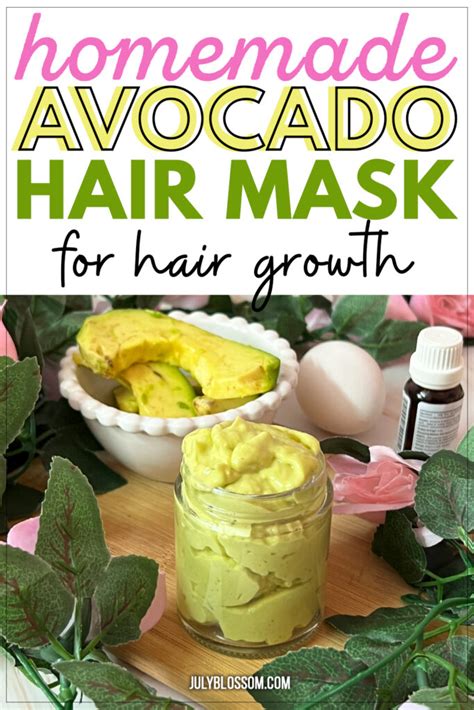DIY hair masks: A natural path to hair bliss
Hair is a crowning glory that deserves the utmost care and nourishment. While store-bought hair products offer convenience, they often contain harsh chemicals that can damage hair in the long run. Embracing DIY hair masks, on the other hand, empowers you with control over the ingredients and allows you to tailor treatments to your specific hair needs.

Benefits of DIY Hair Masks
-
Customization: Create masks that cater to your unique hair type and concerns, whether it’s dryness, damage, or frizz.
-
All-natural ingredients: Avoid harsh chemicals and opt for natural ingredients that gently nourish and revitalize hair.
-
Cost-effective: DIY masks utilize common household items, making them an affordable way to pamper your locks.
-
Fun and relaxing: The process of creating and applying hair masks can be a soothing and enjoyable self-care ritual.
4 Essential Hair Mask Ingredients
-
Oils: Argan oil, coconut oil, and olive oil provide deep hydration and nourishment to dry hair.
-
Fruits: Bananas, avocados, and strawberries contain vitamins and antioxidants that promote hair health and shine.
-
Dairy: Yogurt and honey add protein and moisture, leaving hair soft and manageable.
-
Other: Eggs, aloe vera, and apple cider vinegar offer additional benefits for hair growth, scalp health, and shine.
Step-by-Step Guide to Making a DIY Hair Mask
-
Choose your ingredients based on your hair type and needs.
-
Combine ingredients in a bowl until you achieve a smooth, creamy consistency.
-
Apply the mask to your hair, focusing on the ends.
-
Cover your hair with a shower cap or towel.
-
Leave the mask on for the recommended amount of time (usually 20-30 minutes).
-
Rinse the mask thoroughly with lukewarm water.
6 Homemade Hair Masks for Every Hair Need
1. Avocado Mask for Dry, Damaged Hair
Ingredients:
- 1 ripe avocado
- 2 tablespoons coconut oil
- 1 tablespoon honey
Benefits:
- Avocado nourishes dry hair with its rich fatty acids.
- Coconut oil penetrates deep into hair shafts, providing long-lasting hydration.
- Honey adds shine and strengthens hair.
2. Banana Mask for Hair Growth and Shine
Ingredients:
- 1 ripe banana
- 1/2 cup yogurt
- 1 egg
Benefits:
- Bananas promote hair growth with potassium and antioxidants.
- Yogurt provides protein and moisture.
- Eggs add shine and strengthen hair follicles.
3. Coconut Milk Mask for Frizzy Hair
Ingredients:
- 1 cup coconut milk
- 2 tablespoons olive oil
- 1 tablespoon honey
Benefits:
- Coconut milk moisturizes and reduces frizz by smoothing the hair cuticle.
- Olive oil adds shine and softness.
- Honey seals in moisture and prevents breakage.
4. Apple Cider Vinegar Mask for Scalp Health
Ingredients:
- 1 cup apple cider vinegar
- 1 cup water
- 1 tablespoon honey
Benefits:
- Apple cider vinegar balances scalp pH and removes product buildup.
- Honey soothes scalp irritation and reduces itchiness.
- Water dilutes the vinegar, preventing scalp irritation.
5. Aloe Vera Mask for Damaged Hair
Ingredients:
- 1/2 cup aloe vera gel
- 2 tablespoons argan oil
- 1 tablespoon yogurt
Benefits:
- Aloe vera soothes and heals scalp damage.
- Argan oil nourishes and repairs damaged hair strands.
- Yogurt adds protein and moisture.
6. Honey and Egg Mask for Soft, Manageable Hair
Ingredients:
- 1/4 cup honey
- 1 egg
- 1 tablespoon olive oil
Benefits:
- Honey hydrates and strengthens hair.
- Eggs add protein and improve elasticity.
- Olive oil nourishes and adds shine.
FAQs
1. How often should I use a DIY hair mask?
Once or twice a week.
2. How long should I leave a DIY hair mask on?
20-30 minutes.
3. Can I use DIY hair masks on color-treated hair?
Yes, but it’s best to test them on a small area first to ensure they don’t alter the hair color.
4. How can I store DIY hair masks?
Store them in an airtight container in the refrigerator for up to 3 days.
5. Which ingredients are best for my hair type?
- Dry hair: Avocado, coconut oil, honey
- Oily hair: Apple cider vinegar, lemon juice, tea tree oil
- Damaged hair: Aloe vera, argan oil, yogurt
- Frizz-prone hair: Coconut milk, olive oil, honey
6. What are some innovative ideas for DIY hair masks?
- Use green tea or coffee as a base for a mask to promote hair growth.
- Add essential oils like lavender or rosemary for aromatherapy benefits.
- Experiment with different fruits and vegetables, such as berries, kiwi, or pumpkin, for unique nutrient combinations.
Conclusion
Embarking on a journey of DIY hair masks unlocks the door to endless possibilities for nourishing and revitalizing your locks. With a plethora of natural ingredients at your disposal, you can create masks that target your specific hair concerns and promote overall hair health. So, embrace the joy of DIY hair care and witness the transformative results of nature’s bounty.
